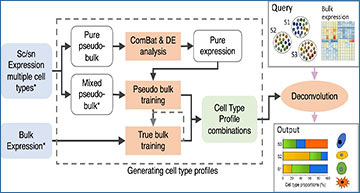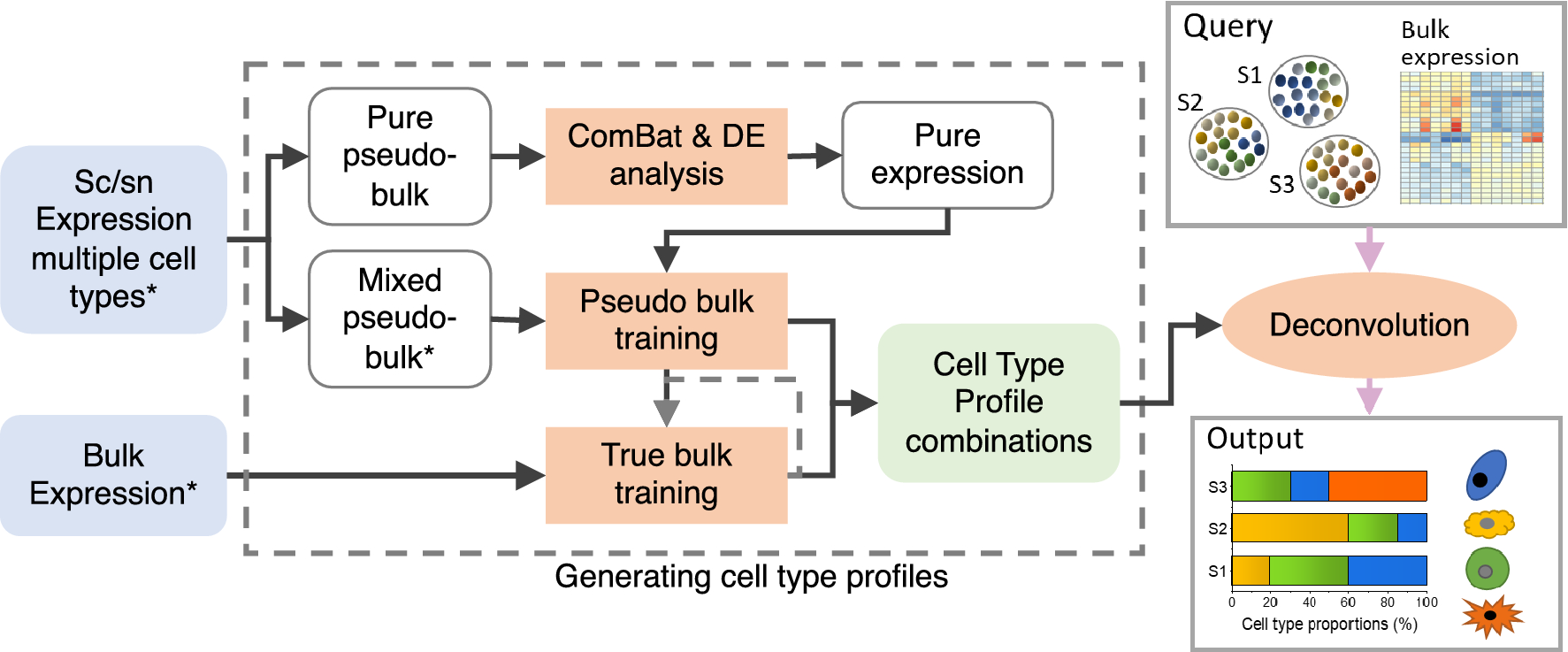Induced pluripotent stem cell (iPSC) derived cell types are increasingly employed as in vitro model systems for drug discovery. For these studies to be meaningful, it is important to understand the reproducibility of the iPSC-derived cultures and their similarity to equivalent endogenous cell types. Single-cell and single-nucleus RNA sequencing (RNA-seq) are useful to gain such understanding, but they are expensive and time consuming, while bulk RNA-seq data can be generated quicker and at lower cost. In silico cell type decomposition is an efficient, inexpensive, and convenient alternative that can leverage bulk RNA-seq to derive more fine-grained information about these cultures. A team led by researchers at BioInfoRx have developed CellMap, a computational tool that derives cell type profiles from publicly available single-cell and single-nucleus datasets to infer cell types in bulk RNA-seq data from iPSC-derived cell lines.
Overview of the CellMap workflow
CellMap includes the steps to generate the cell type specific profiles and the deconvolution which uses these profiles to predict the composition of a bulk sample. Datasets with samples of known cell-type compositions are denoted by *.
Availability – The CellMap R package, including the R code to generate the manuscript figures, is available from https://github.com/interactivereport/CellMap.
Ouyang Z, Bourgeois-Tchir N, Lyashenko E, Cundiff PE, Cullen PF, Challa R, Li K, Zhang X, Casey F, Engle SJ, Zhang B, Zavodszky MI. (2022) Characterizing the composition of iPSC derived cells from bulk transcriptomics data with CellMap. Sci Rep 12(1):17394. [article]





